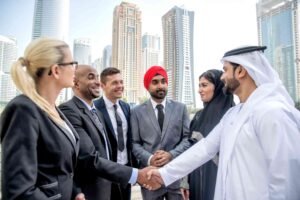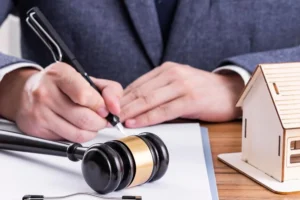For many homeowners, the prospect of a building inspection can be stressful. Whether you’re selling your home, buying a new one, or managing renovations, a building inspection is an essential part of the process. This comprehensive guide will help you navigate the building inspection process with confidence. From understanding the purpose of the inspection to preparing your property and dealing with the results, we’ll cover everything you need to know to ensure a smooth and successful inspection.
Understanding the Purpose of a Building Inspection
A building inspection is a thorough assessment conducted by a licensed inspector to evaluate the condition of a property. This inspection is crucial for identifying potential issues that could impact the safety, value, or functionality of a property. Inspections generally cover a range of areas, including the structure, systems, and overall safety of the building.
The main objectives of a building inspection are to ensure that the property complies with local building codes and regulations, identify any existing or potential problems, and provide a detailed report on the property’s condition. For buyers, this inspection offers peace of mind by revealing any hidden issues that could affect their decision to purchase. For sellers, it helps address problems before listing the property, potentially avoiding delays or complications during the sale.
Preparing Your Property for Inspection
Cleaning and Organizing
Before the inspector arrives, it’s important to clean and organize your property. A well-maintained and tidy home not only presents better but also allows the inspector to perform a more thorough examination. Ensure that all areas of the property, including less frequently accessed spaces like attics, basements, and crawl spaces, are clean and accessible. Remove any clutter that might obstruct the inspector’s view or make it difficult to access key areas.
Addressing Minor Repairs
Take the time to fix any minor issues that might be noticeable during the inspection. Small repairs, such as patching up holes in walls, fixing leaky faucets, or replacing broken tiles, can make a significant difference. By addressing these issues in advance, you reduce the risk of them being highlighted as major concerns during the inspection.
Checking Safety Features
Safety is a key focus during any building inspection. Ensure that all safety features in your home are functioning correctly. Test smoke detectors and carbon monoxide detectors to make sure they are operational and replace batteries if necessary. Check for any exposed wires, loose electrical outlets, or other potential hazards. Ensuring that your property is safe and up-to-date can prevent safety concerns from becoming major red flags.
What Inspectors Look For
Structural Integrity
One of the primary focuses of a building inspection is the structural integrity of the property. Inspectors will assess the foundation, walls, roof, and other critical structural components for signs of damage or instability. Common issues might include cracks in the foundation, sagging or damaged roof supports, or uneven floors. Addressing any visible structural problems before the inspection can help avoid costly repairs or negotiations later.
Electrical and Plumbing Systems
Inspectors will also examine the electrical and plumbing systems of the property. They will check for any outdated or faulty wiring, inspect the electrical panel for compliance with safety standards, and ensure that all outlets and switches are working properly. For plumbing, they will look for leaks, check the water pressure, and evaluate the condition of pipes and fixtures. Ensuring that these systems are up-to-date and in good working condition can prevent potential issues from arising.
Heating, Ventilation, and Air Conditioning (HVAC) Systems
The HVAC systems in your home play a crucial role in maintaining a comfortable living environment. Inspectors will evaluate the heating, ventilation, and air conditioning systems to ensure they are operational and properly maintained. They will check for any signs of wear and tear, assess the efficiency of the systems, and make sure that they meet current standards.
Being Present During the Inspection
Providing Access
During the inspection, it’s important to provide the inspector with easy access to all areas of your property. This includes ensuring that crawl spaces, attics, basements, and utility rooms are accessible and free of obstacles. Make sure that any locked doors or gated areas are open and accessible.

Being Available for Questions
While you don’t need to be present for the entire inspection, it’s helpful to be available to answer any questions the inspector might have. This can help clarify any issues and ensure that the inspection process runs smoothly. If the inspector needs additional information or access to specific areas, being available to assist can prevent delays and ensure that all aspects of the inspection are covered.
Reviewing the Inspection Report
Understanding the Findings
After the inspection, the inspector will provide a detailed report outlining their findings. This report will include information about any issues or concerns identified during the inspection, along with recommendations for repairs or further investigation. Carefully review the report to understand the condition of your property and any areas that may need attention.
Planning for Repairs
If the inspection reveals issues, it’s important to address them promptly. Prioritize repairs based on their severity and impact on the property’s safety and value. For significant issues, consider consulting with professionals to get estimates and recommendations for repairs. Addressing these problems proactively can help you avoid complications during the sale process or ensure that your home is in good condition for your own use.
Surviving a building inspection involves thorough preparation, understanding what to expect, and addressing any issues that arise. By following these tips and being proactive in your approach, you can ensure a smoother inspection process and protect your property’s value. Whether you’re preparing to sell, buying a new home, or managing renovations, a successful building inspection can set the stage for a successful real estate transaction and a safer, more valuable property.






















